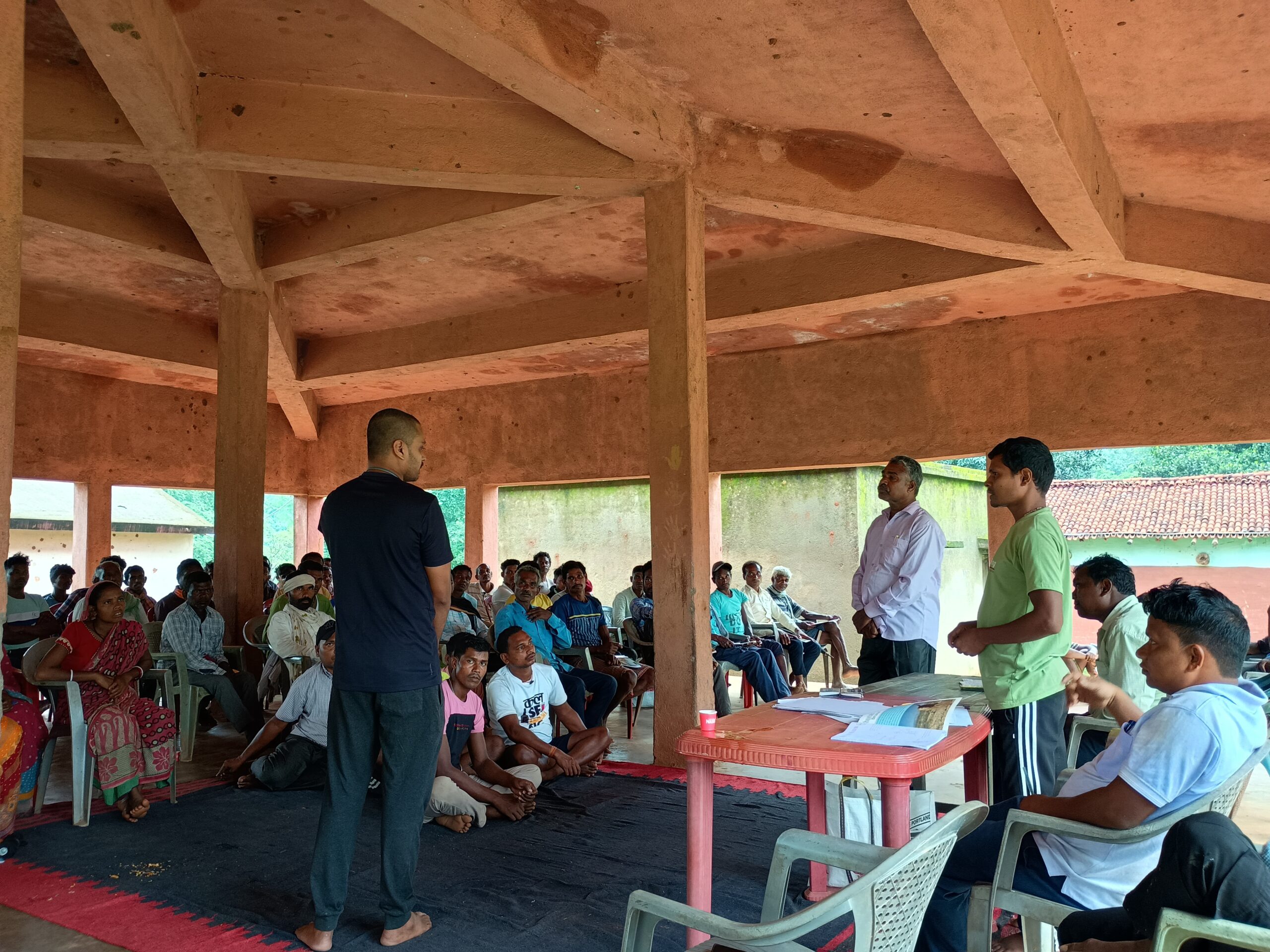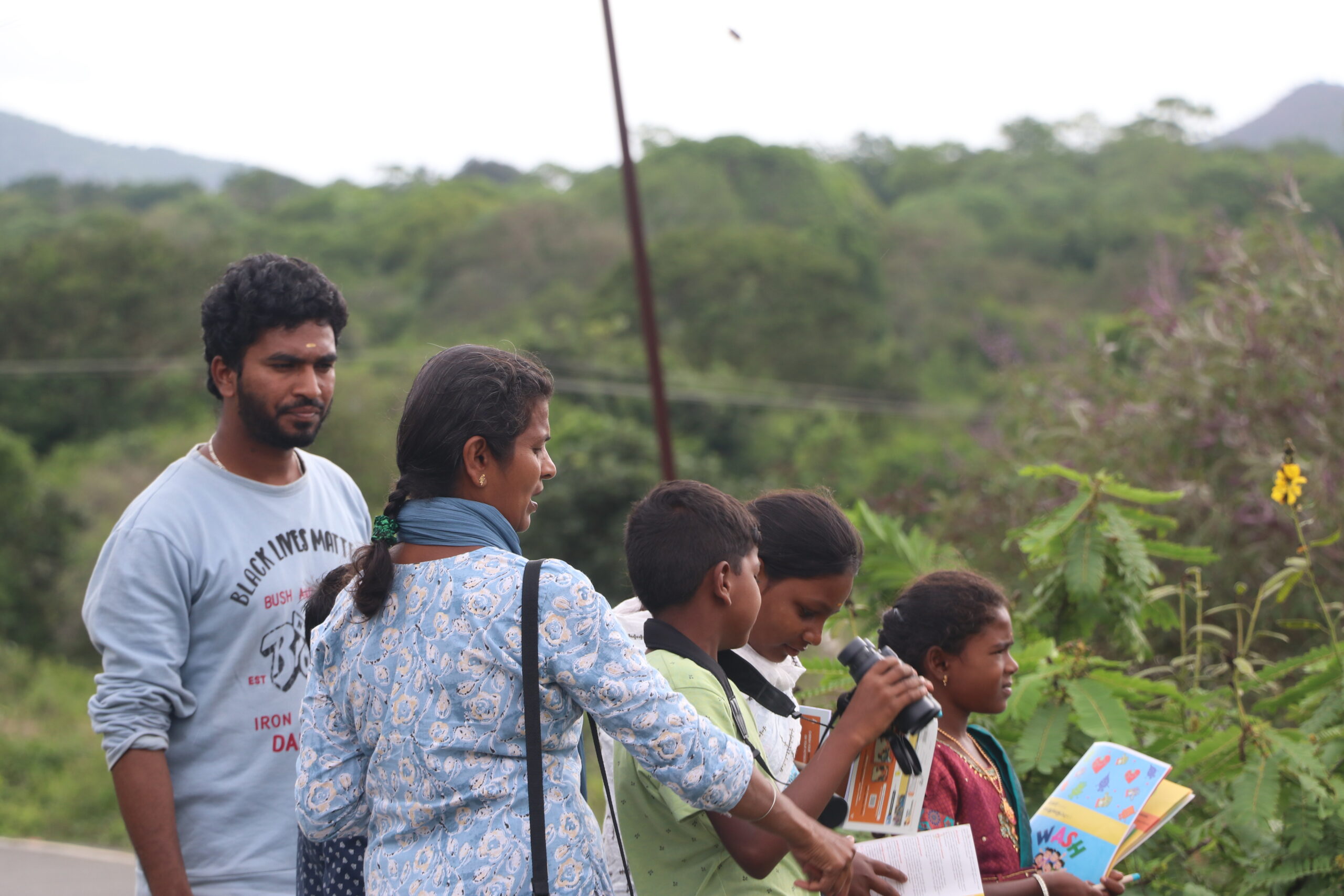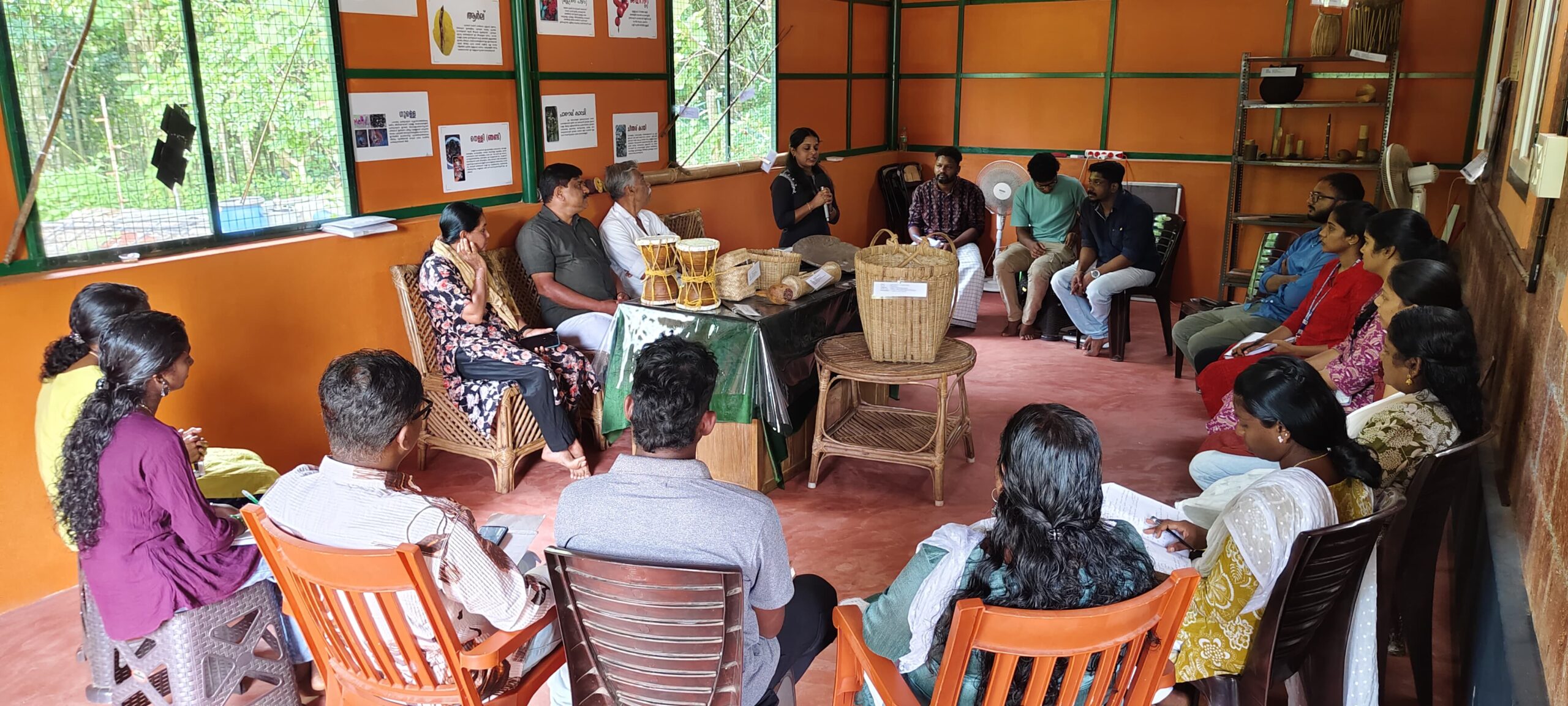By Jyoti Patale, Eastern India Team Consultant, Networks and Alliances
An area-level meeting was held on 27th August, 2024 at Hatnada, Saraikela, facilitated by Budheshwar Mahato, a Community Resource Person, Keystone Foundation. This meeting brought together participants from 10 villages (Hatnada,Saradabeda,Kalajhor, Udaipur,Jungali Khas, Palobeda, Rearda, Barshida, Kashida, Lapaibeda) including post office officials, forest guards, village representatives, ward members, Forest Rights Committee (FRC) members, Booth Level Officers (BLOs), and Babalu Murmu, a forest rights awareness social worker from Jharkhand. Jagabandhu Sanda (Consultant – Eastern India Project), Suklal Sardar (Community resource person, Forest education), Jyoti Patale (Consultant, Keystone foundation) participated in this meeting. The meeting was held with hopes of also strengthening community engagement in the area.
Representatives from the post office discussed various policies, with a special focus on Sukanya Samriddhi Yojana for the girl child, and explained how villagers could open savings accounts in the post office. The importance of required documents was highlighted, providing the community with detailed information about procedures to access these schemes. Two Booth Level Officers from the village spoke about the process of issuing voter ID cards, stressing the significance of participation in elections. They also discussed the procedures for acquiring birth certificates and Aadhar cards, which are essential for accessing government schemes and policies.
Pradip Mahato, the forest guard responsible for the area, addressed wildlife conflict compensations, forest fire incidents, and shared techniques to mitigate forest fires. He also discussed the necessary documentation for securing forest rights, including the importance of providing accurate information regarding forest boundaries.
Forest Rights Committee members from the 10 participating villages shared their progress regarding the Forest Rights Act (FRA). Update on documents submission for community forests rights and Individual Forest rights were discussed by community members. Villagers also emphasized the significance of the forest protection committees active in 10 villages, which were initiated by Budheshwar Mahato and have been actively patrolling the forests. These committees have established their own rules for collecting forest produce and have implemented penalties for rule violations. The villagers reported a significant reduction in illegal tree cutting by outsiders, and they highlighted the benefits they are getting from the forest, including seasonal mushrooms, firewood, medicinal plants, fruits, and other resources.
In addition to the committee members, Babalu Murmu, a social worker with extensive experience in forest rights awareness, explained the forest rights act in detail. He elaborated Individual Forest Rights (IFR) and Community Forest Rights (CFR), as well as the need for proper forest management after securing these rights. He has shared the procedural steps involved in obtaining forest rights and addressed various questions from the villagers, clarifying common doubts and awareness gaps in community members.
Ultimately, the meeting served as an effective platform for direct dialogue between government officials and the villagers. It helped raise awareness of several government schemes, forest rights, and the responsibilities tied to forest management. Budheshwar Mahato facilitated the discussion, ensuring that the session, conducted in Bengali and translated into Mundari and Hindi language, reached all participants and encouraged an understanding of government policies and their benefits for the community.


















